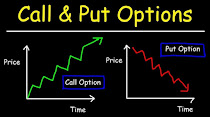Basic information of Share Market
INTRODUCTION The stock market is a place where companies raise capital by selling shares of their company to the public. These shares, also known as stocks, are traded on a stock exchange, and their value can go up or down depending on various factors. Investing in the stock market can be a great way to grow your wealth over time, but it can also be risky. In this article, we'll explore how the stock market works and what factors can impact stock prices. # HOW THE STOCK MARKET WORKS The stock market is made up of various stock exchanges, such as the New York Stock Exchange (NYSE) and the NASDAQ. Companies list their shares on these exchanges, and investors can buy and sell these shares through a broker or online trading platform. When a company first goes public, it typically issues an initial public offering (IPO) , where it sells shares of its company to the public for the first time. After that, the company's shares are traded...













Comments
Post a Comment